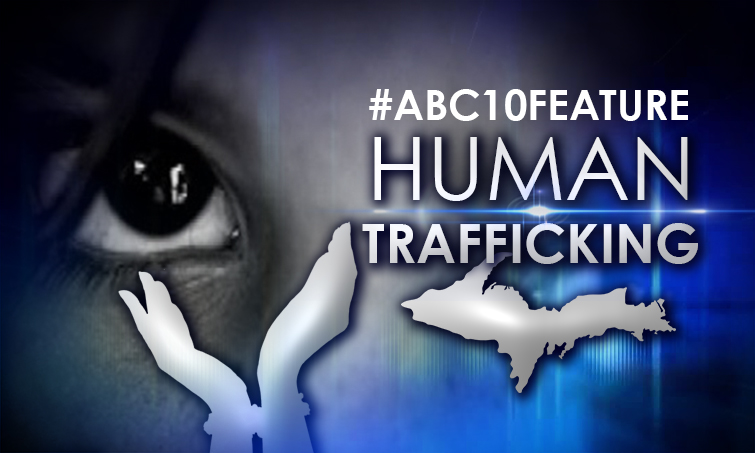Human sex trafficking in the U.P., it’s here – Part I

UPPER PENINSULA — It’s an epidemic that is increasing rapidly each year. More than 60 percent of its victims are tricked into it by someone they know. This sweeping issue is human trafficking. ABC 10’s Melanie Palmer has part one of a two part series on a very serious problem that is plaguing the country, even here in the U.P.
“If you don’t hear about it on the television or you don’t read about it on the newspaper, to the general public it doesn’t happen, but when you’re in law enforcement you hear it all the time, it is a very real thing and it is affecting our communities, especially in the Upper Peninsula,” said Michigan State Police Community Service Trooper, Patrick Janisse.
It is something that is not often publicly discussed but negatively impacting communities at an excessive rate across the Upper Peninsula. Victims can be anyone at any given time, a majority of reported cases involved are females. January is human trafficking awareness month and the best way to become aware of this issue is to get informed.
“With human trafficking, you have to have three things. You have to have force, fraud, or coercion in order for it to be human trafficking. It involves the movement of a person over transportation, recruiting, transferring and harboring a person through force, threat, fraud, or coercion,” said Janisse.
Over 60 percent of victims were tricked into the trafficking system by someone they know and 35 percent of the time, that person is a family member. Human traffickers also known as ‘Pimps’ typically target young women who have ran away from home.
“Almost 100% of girls and women who are being trafficked or maybe prostituting themselves and victims of childhood sexual abuse, so a lot of times these girls are running away from home because they are being sexually abused at home or other neglect is happening so that is how they get caught up in it. Pimps and traffickers prey on young girls who are run aways. They go to the places where runaways hang out, within 24-hours of running away a girl is approached by a human trafficker,” said Victim Advocate, Elisabeth Alquist.
These traffickers typically lure in their victims by flattering them and convincing them of wanting a romantic relationship.
Although human trafficking cannot always be physically seen in the U.P., it is here. In 2013, a Dickinson County man was charged with human trafficking or forced labor of minors in the area. Johnathan Vivyan is now serving time in the Marquette Branch Prison for his crimes. Due to the ambiguity of the situation, law enforcement officials need to keep their eyes peeled for any clue that could lead to a potential human trafficking case.
“It’s a lot more common than people realize, it’s very clandestine by nature. You have people that come into town that may be here for a while and you’re not aware that they are involved in human trafficking so it’s really one of those things that really fly under the radar,” said Iron Mountain Police & Fire Services Director, Ed Mattson.
With users of social media outlets such as Facebook and Snapchat on the rise, these sites make finding a victim extremely accessible for traffickers. Young women are easily drawn in on these sites, making picking up victims even easier than before.
“Because you can meet anyone online and any stranger can request to add you as a friend on Facebook, a lot these girls who are being abused at home or are looking for an escape from anything that is happening in their lives will allow these men to be their friends on Facebook and Snapchat. From what a lot I’ve seen with girls I’ve worked with, a really large percentage of them met their traffickers online or on the street when they run away,” said Alquist.
In addition to social media sites, frequently visited websites have also had advertisements for trafficking victims, displaying the women like an object on sale. Human trafficking cases can increase in the U.P. when the number of outside visitors becomes higher, such as hunting season.
“It increases when we have more outside people in the area, so yes maybe hunting season or different holidays, so those kinds of things do increase. We from time to time find things on Backpage, the website where there will be someone coming into town for a period of time staying at certain hotels and offering services,” said Mattson.
Tomorrow night we will bring you the details on signs of a human trafficking situation, services that are offered, and the action that needs to be taken in part two of this series.
